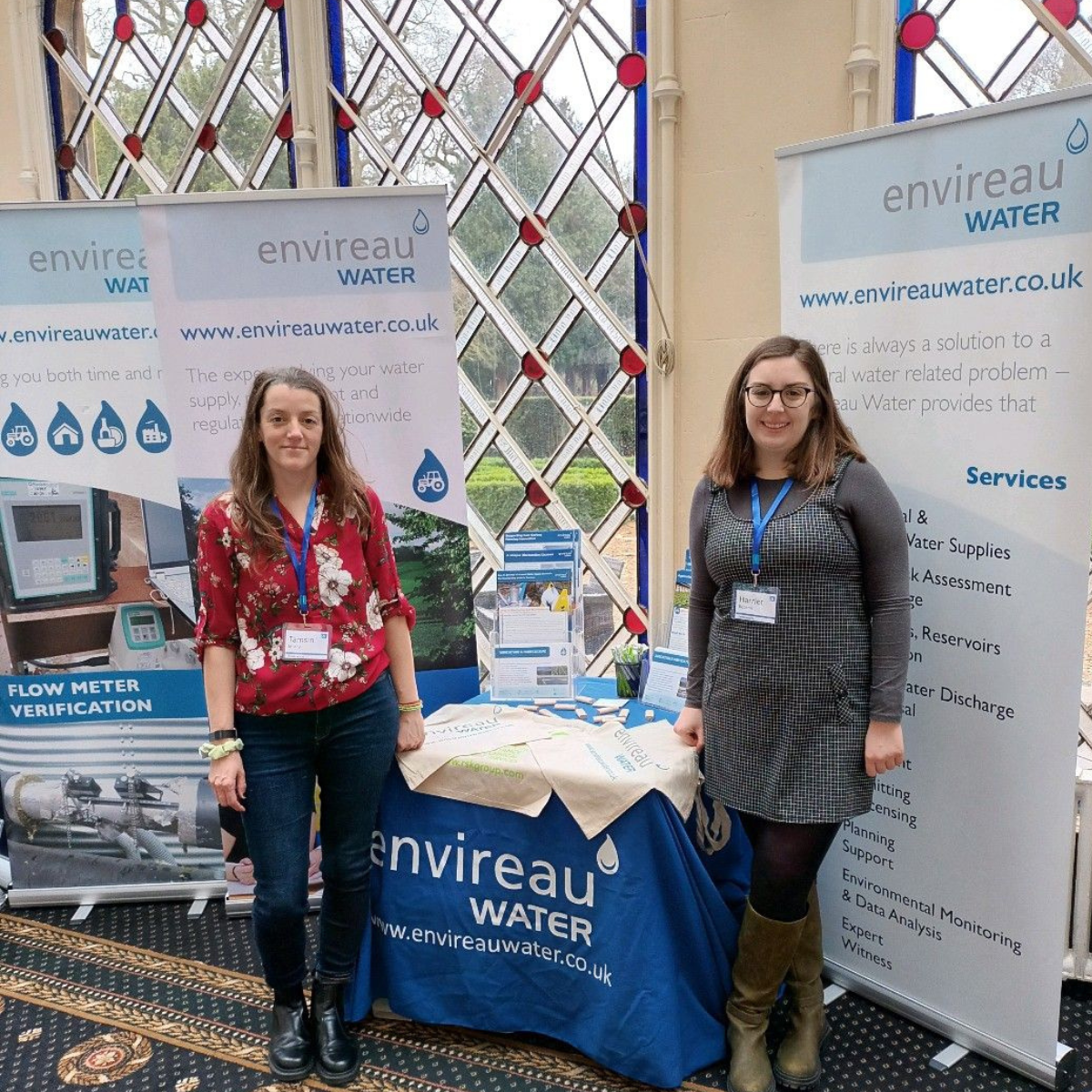UKIA Annual Spring Conference
Last week, Tamsin Morey and Harriet Robson, both Water Resources Specialists, travelled to Peterborough to attend the UKIA Annual Spring Conference. Off the back of 6 weeks of drier weather, and the Environment Agency forecasting moderate to poor irrigation prospects in East Anglia, it was the perfect time to ask the question “are you ready for the next drought?”.
The programme was kicked off by Kelly Hewson-Fisher, National Water Resources Specialist at the NFU, who highlighted the importance of water to the UK’s food production and economic growth, and the challenges that the agri-food industry is facing from climate change, regulatory pressures, and population growth. Kelly talked about the Water for Food Group and its Task & Finish Group, which we at Envireau Water are a key part of, that is working to produce a framework for irrigators to effectively plan for drought and invest in water resources resilience.
Andrew Williams, a farmer from Suffolk and a member of ESWAG, then described the impacts that the 2022 drought had on his business and its irrigation requirements. Richard Davis, Senior Hydrology Advisor at the Environment Agency, reflected on the data recorded during the summer 2022 drought and the following winter, and informed us of the water resources outlook and irrigation prospects for summer 2023. Water resources will be challenged again this summer in some parts of the country, and irrigators must take action to safeguard their supplies.
Following the morning coffee break we were joined by Adriano Battilani, a senior researcher looking at agricultural water management in Italy. He described the increasing occurrence of drought in Europe and the challenges it is creating, such as soil erosion and saline intrusion in deltas. Innovation is required, and he made some interesting suggestions, such as digital twins and solar panels on watercourses. Ian Holman, professor of Integrated Land and Water Management at Cranfield University, then took us through some projects that they have been working on, including water sharing in the River Lark catchment, and the D-Risk tool and its new feature to model rainwater harvesting potential.
After lunch, we watched a video presentation from Liz Bentley of the Royal Meteorological Society, who described the changes in UK rainfall patterns over recent years. We learned that the atmosphere can hold 7% more water per 1 degree of warming, which in turn is causing more extreme rainfall events. Giles Bloomfield of the Water Management Alliance then introduced us to projects that the Internal Drainage Boards (IBD) are working on to make more drainage water available for irrigation and mitigate saline intrusion and land erosion. This includes the Felixstowe Hydrocycle, which is an industry-leading scheme that is distributing water to farmers that would previously have been pumped out to sea in large volumes by IDBs. Andrew Hawes, farm reservoir consultant, closed the programme with a humorous talk about how to successfully site your reservoir and get value from the planning process.
Tamsin commented;
“The conference was a sell-out event with an air of enthusiasm and engagement from participants. It was a great opportunity to speak with clients and friends, old and new, about drought readiness. In preparing for summer 2023, its crucial that irrigators take action to safeguard their supplies. Longer-term, the Water for Food Group and Task & Finish Group are making key steps to support irrigators and invest in water resources resilience. We understand the problems facing abstractors and are working steadily to provide action.”
In the meantime, if you need Tamsin’s or Harriet’s support, contact Envireau Water on 01332 871 882.








